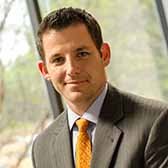Comprehensive Financial Planning
A good financial plan doesn’t just focus on one element. It needs to encompass both the present and the future, the expected and the unexpected. At Cornerstone Financial Management, LLC, we have the experience to guide you in your planning and to make sure that your financial plan is flexible enough to fund your retirement and your children’s college education as well as things like an unexpected illnesses or accidents.

Elements of a Good Financial Plan
- A balanced budget. A well-executed financial plan starts with the basics. Without a balanced household budget, saving for the future is impossible. We’ll start with outlining your basic household expenses and income. Sometimes all it takes is fresh eyes to see opportunities for savings.
- An emergency fund for unexpected expenses. Unexpected expenses are a fact of life. Cars break down, furnaces and roofs need to be replaced, and family members lose jobs. Conventional wisdom states that a healthy financial plan includes an emergency fund equal to several months of combined, regular monthly expenses.
- Investments to pursue future financial goals and unexpected future expenses. Ideally, your budget will include money to help you meet your future plans – things like a nice vacation, the opportunity to start your own business or go back to school, your children’s college education, and a comfortable retirement. A good, experienced financial planner, like those at Cornerstone, will help you invest those funds in the products that will seek to maximize your return while minimizing your risk.
- Insurance. Any good financial plan should include an insurance portfolio to protect you and your family against things you can’t plan on, such as disability, sudden death, or loss of your home due to a fire or other disaster.
Click here if you would like to have a financial advisor contact you about your financial planning needs.











